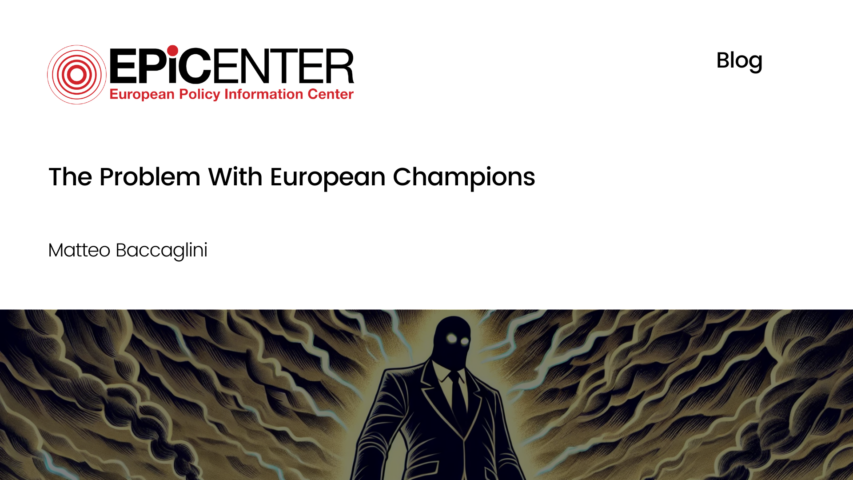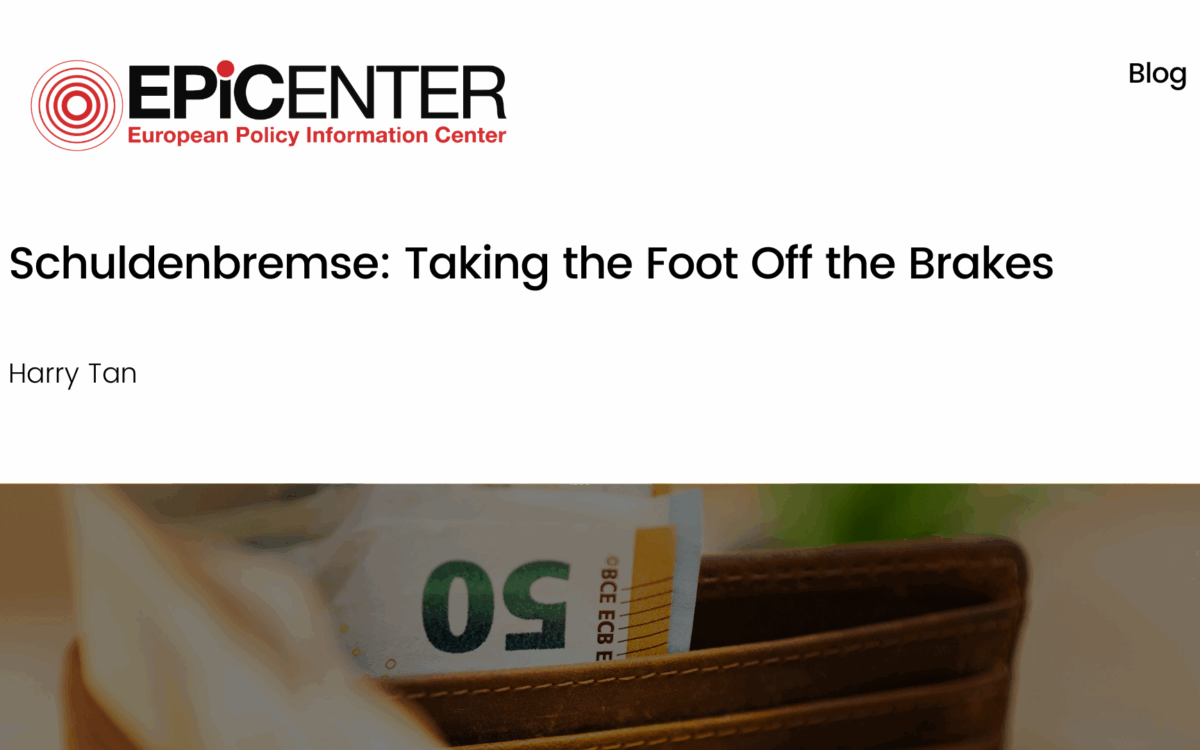The Problem With European Champions

The Problem With European Champions
Matteo Baccaglini // 19 September 2019
Free market liberals will have shuddered at the news that European Commission officials have drawn up far-reaching plans for a new €100 billion fund to promote European technology giants.
Uncovered by POLITICO in late August 2019, the 173-page document bemoans the lack of European competitors to American and Chinese titans like Google, Facebook, Alibaba and Tencent. The wishlist calls for direct funds to foster European “industrial champions” and new state aid exemptions so that member states can help their own ones.
Much of the press coverage has reported the proposals as a ‘sovereign wealth fund’. This is unusual: typically, sovereign wealth funds are financed by fiscal surpluses and vast foreign exchange reserves originating from commodity export revenues, especially oil. They are established so that current, transient prosperity emanating from these sources are not squandered by present spending, but rather invested in the future.
Instead, the proposed European fund would be financed in part from the private sector and in part from the EU’s budget, which has no vast surplus. Rather than maximise investment returns, it will overtly champion a domestic industrial policy. It is better described a state investment fund, not a sovereign wealth fund.
More to the point, the fund panders to the populist notion of “national champions” – large for-profit corporations that are expected to promote the political interests of the government in which they are domiciled; and that are in turn the beneficiaries of favourable government policies and widespread patriotic worship.
The philosophy of national champions is anathema to market competition. The state is rarely better than the market at guessing future winners. Often, state grants to national champions squander taxpayers’ money on inefficient and bloated companies, zapping capital away from entrepreneurial start-ups that would otherwise thrive.
Take Britain’s ruinous policy of promoting inefficient national champions in the 1970s, including Alfred Herbert, British Leyland and International Computers Limited. When the policy was abandoned in the 1980s, after generous but ineffective grants and costly nationalisations, productivity and growth shot up because competitive pressures increased and chronic overstaffing was alleviated. Or think of Quaero, a Franco-German search engine. In 2008, the project received €99 million of French taxpayers’ money. Within six years, it gave up its struggle to compete with Yahoo and Google.
National champions also nurture unhealthy relations between government and big business. Governments stifle competition to their pet companies, especially through import tariffs and favourable regulations. The companies play a role in setting these regulations themselves: the Boeing 737 Max scandal revealed Boeing’s influence over safety approvals in America. In turn, national champions serve political goals to maintain political favour, such as through overstaffing or expanding internationally in strategic locations. Consumers and taxpayers foot the bill through wasteful spending, higher prices and lower-quality goods.
Asides from creating national champions, in a striking endorsement of protectionism, the proposed fund goes on to call for higher unilateral tariffs on the United States, interdictions on tendering to Chinese companies subsidised by Beijing and more trade barriers against countries with lower environmental standards.
It will be Europeans paying for all this. Where foreign ownership or competition can provide higher-quality products at a lower price, it hurts domestic consumers – and disproportionately the poorest – to close one’s doors to free trade.
In any case, ‘foreign ownership’ is an elusive concept. Multinational companies have assets and interests across the world, not just the country in which they are domiciled. Companies are not owned by governments: their ownership derives from a complex, interconnected web of contractual agreements between shareholders, directors, managers and others, often from nationalities all over the world. Inviting foreign ownership should not be seen as compromising one’s nation, least of all when it can enrich it.
For its part, the EU may promote a tech-friendly Europe without resorting to the short-sighted and expensive populism of a state investment fund. It could encourage local tech hubs benefitting from reduced business rates or it could promote business-friendly regulations. It is no surprise that Sweden and the UK, the member states scoring highest on the ease of doing business index after Denmark, have the most vibrant technology sectors in Europe, boasting companies like JustEat, ASOS, Ericsson and Spotify.
As regulators discovered through the experience of GDPR, complex and cumbersome regulations – which only the largest companies have the expertise and money with which to comply – tend to bolster market incumbents to the detriment of new innovators.
There is hope that the plans won’t come to fruition. The transition team of the new Commission, which begins in November, has publicly denied all knowledge of the plans, while the outgoing Commission downplayed the memo as “draft internal brainstorming documents”. Even with relatively fiscally-prudent Britain out of the EU, other member states, which may have to ratify the plans, are likely to object to the proposals, with Finland already having signalled its opposition to new protectionist measures. We can only hope.
EPICENTER publications and contributions from our member think tanks are designed to promote the discussion of economic issues and the role of markets in solving economic and social problems. As with all EPICENTER publications, the views expressed here are those of the author and not EPICENTER or its member think tanks (which have no corporate view).



